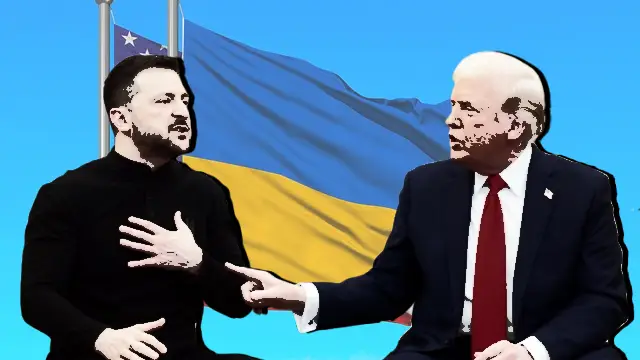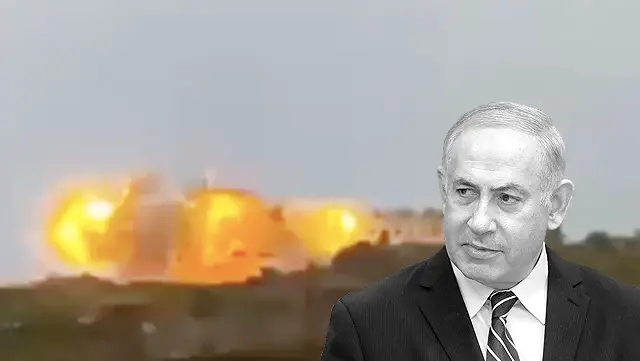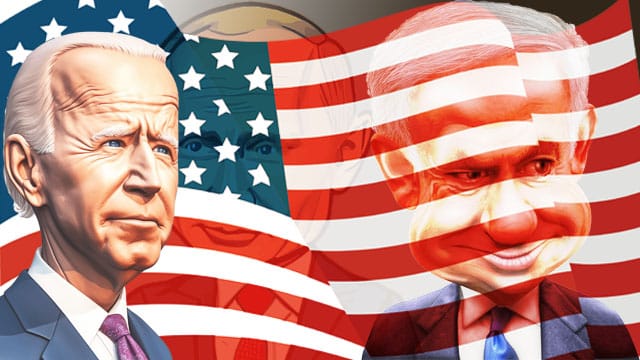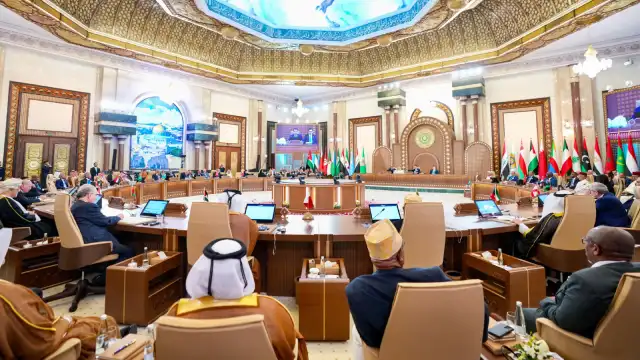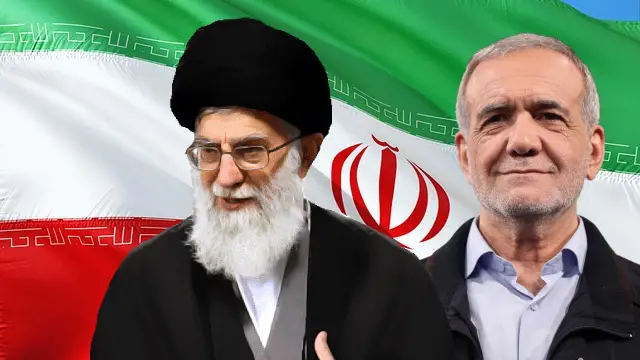As world leaders gear up to attend the United Nations General Assembly (UNGA) in New York to deliver their speeches, there is an ominous silence over the recent pager and walkie-talkie blasts in Lebanon, which killed 37 people and injured 2,931 on September 17th and 18th, according to Lebanese Health Minister Dr Firas Abiad. Except for China and Russia, no major country, including India, condemned the terrorist attack, allegedly committed by the Israeli secret service.
The silence of the West and its allies over the ghastly attacks, allegedly engineered by Israel, has become a salient feature of global diplomacy. The West’s condoning such acts will lead to an exponential rise in such terror attacks, leading to bloodbaths around the region.
Russia condemns pager and walkie-talkie blasts in Lebanon
Maria Zakharova, the Russian Ministry of Foreign Affairs (MFA) spokeswoman, condemned the pager and walkie-talkie blasts in Lebanon. In a statement issued on September 18th, Ms Zakharova said, “We consider this to be another act of hybrid warfare against Lebanon, which has affected thousands of innocent people. We believe that those behind this high-tech attack deliberately sought to incite an escalation and provoke a major war in the Middle East.”
She called the terror attacks on Lebanon a “gross violation of its sovereignty” and a “serious challenge to international law”.
The Russian MFA spokeswoman also equated the crime with that of the Nord Stream gas pipeline explosions, for which Moscow has pointed fingers towards the West.
“A comprehensive investigation of this crime is in order. All those responsible must be held accountable. It is essential that this new act of terrorism is not swept under the carpet, as Western countries have been trying to do with regard to the Nord Stream gas pipeline explosions,” she concluded.
China on the pager and walkie-talkie blasts in Lebanon
Chinese Foreign Ministry’s Spokesperson Lin Jian condemned the pager and walkie-talkie blasts in Lebanon.
“We oppose any act that infringes on Lebanon’s sovereignty and security and express concerns over possible escalation of tensions in the region that this incident might trigger. China calls on relevant parties to earnestly safeguard peace and stability in the Middle East,” Mr Lin said.
American complicity
In comparison, the US Department of State’s Spokesperson Matthew Miller didn’t condemn the terror strikes but exhibited American support to Israel in expanding the conflict. While refusing to divulge what the Israeli side has confided during their discussion with Washington, Mr Miller slyly asserted that the US will support Israel in launching an aggression on Lebanon.
“We are committed to the defence of Israel against terrorist organisations. That includes Hamas. It includes Hezbollah. It includes other Iranian proxies. We will continue to stand by Israel’s right to defend itself. But we don’t want to see any party escalate this conflict, period,” Mr Miller commented.
Europe stares with a blank expression
In the meantime, the UK’s Foreign and Commonwealth Office remained mum on the affair. Germany’s Federal Foreign Office also didn’t condemn the terroristic pager and walkie-talkie blasts in Lebanon.
It’s only France that spoke against the terror attacks without condemning it unequivocally. In a telephone conversation with Lebanon’s top political and military brass, French President Emmanuel Macron commented that both parties should maintain restraint to avoid a war at present. He told them he’d discuss the issue with Israeli Prime Minister Benjamin Netanyahu.
Mr Macron said that war isn’t inevitable in Lebanon and that “nothing, no regional adventure, no private interest, no loyalty to any cause merits triggering a conflict in Lebanon”.
Following his footsteps, France’s Ministry for Europe and Foreign Affairs voiced its concerns without condemning Israeli actions near Lebanon’s southern borders, especially unilateral air strikes targeting civilians.
“France voices its concern that the recent security developments in Lebanon are contributing to a dangerous escalation in tensions in the region,” the ministry said in a statement.
“It has noted the Israeli authorities’ recent statements on military operations in Lebanon and asks them to show the utmost restraint. It reiterates its demand that Hezbollah immediately cease its attacks on Israeli territory. It expresses its conviction that the maintenance of peace and security in Lebanon requires all the Lebanese parties to ensure the national interest prevails and distance themselves from the conflicts under way in the region (sic),” it added by putting the onus of restoring peace on Hezbollah.
‘Shh’, Middle East
But even though the US and France have at least mentioned the issue of Lebanon, regional powers like Jordan, Saudi Arabia and the UAE remained silent on the pager and walkie-talkie blasts in Lebanon.
Iran—the patron of Hezbollah and the regional resistance axis fighting Israel—condemned the pager and walkie-talkie blasts in Lebanon.
Iran the lone protester
Iranian Ministry of Foreign Affairs Spokesperson Nasser Kanaani strongly condemned the pager and walkie-talkie blasts in Lebanon. Directly blaming Israel for the attacks, Mr Kanaani said, “Today’s terrorist operation in Lebanon was carried out as a continuation of the Zionist regime’s combined operations and their mercenary agents. It contravenes all moral and human principles, international law, especially international humanitarian law, and warrants international criminal prosecution, trial, and punishment.”
“This combined terrorist act, which is, in fact, a form of mass killing, once again clearly proves that the Zionist regime, in addition to committing war crimes and genocide against the Palestinian people, has placed regional and international peace and security in serious jeopardy. Accordingly, confronting the regime’s terrorist actions and the threats arising from it is an evident necessity, and the international community must act promptly to combat the impunity of the Zionist criminal officials,” Mr Kanaani stressed.
The nonchalant elephant
While all these happened around the region, India, apparently in a bid to not irk Israel and the US, remained a mute spectator. On the one hand, the Ministry of External Affairs ignored the terror attack in Lebanon, on the other, a large-scale celebration of the attacks was observed on social media, especially X (formerly Twitter) by Hindutva-incensed trolls.
Many exhibited their “full support” for Israel’s genocide in Gaza and Prime Minister Narendra Modi’s ruling far-right Hindutva-aligned Bharatiya Janata Party (BJP). These social media trolls, who exhibit their affiliation with the BJP, cheered the humanitarian crisis in Lebanon and shared jokes and memes on the issue.
Many used the occasion to spread Islamophobic vitriol by turning Hezbollah, the victim, into a predator using fabricated narratives designed by the West.
According to the Beirut Embassy of India, the bilateral relationship between the two countries is not just strong, India enjoys a positive balance of trade surplus from its trade with Lebanon.
In the financial year 2022-23, India and Lebanon had bilateral trade worth $595m, with Indian exports to Lebanon at $403m and Indian imports from Lebanon at $92m, according to the Embassy.
Now South Block needs to maintain its ties with Lebanon due to the positive trade surplus and geopolitical advantage. By remaining mum on a crucial issue like the pager and walkie-talkie blasts in Lebanon, the deaths and the devastation, Mr Modi’s BJP-led government again proved that it’s going to stand with Israel risking its traditional ties with Arab countries.
The losses and the risks
While India’s rival China manages to win ground in West Asia and Africa using its ‘soft diplomacy’, it appears New Delhi has no plan to strengthen its image in the volatile region to establish strong ties with countries and improve bilateral trade. Rather, it’d stick to the US-led order and remain complicit in Israeli crimes.
Recently, a Danish ship carrying a consignment of Indian munitions en route to Israel was denied docking by Spain. India’s largest conglomerate Adani Enterprises’ joint venture with an Israeli company is also providing weapons to Israel. Moreover, these allegations arose when India declined to sell ammunition to Israel during the initial days of its Gaza offensive in October 2023.
Such acts are not just jeopardising India’s standing in the Arab world, it’s also pushing away its traditional allies like Russia, which is now strengthening its ties with Pakistan, despite exhibiting its support for Mr Modi’s government and foreign policies in public. It appears that Moscow has comprehended that despite tall talks of multi-polarity, due to excessive financial exposure of India’s ruling Gujarati clan, represented by Mr Modi, to the West, New Delhi will always favour the West’s so-called ‘rule-based order’ than the comprehensive security system promoted by China and Russia.
The tragedy
Even though the Gulf monarchies, the western countries, India and others will try to use the UNGA for their political propaganda, the cause of the civilians killed and injured in the recent pager and walkie-talkie blasts in Lebanon will be forcefully brushed under the carpet by the West’s indifference. It will be a shame for India, as it would fail to exhibit the country’s commitment to peace in the region and its support for a two-state solution.
Join our channels on Telegram and WhatsApp to receive geopolitical updates, videos and more.



